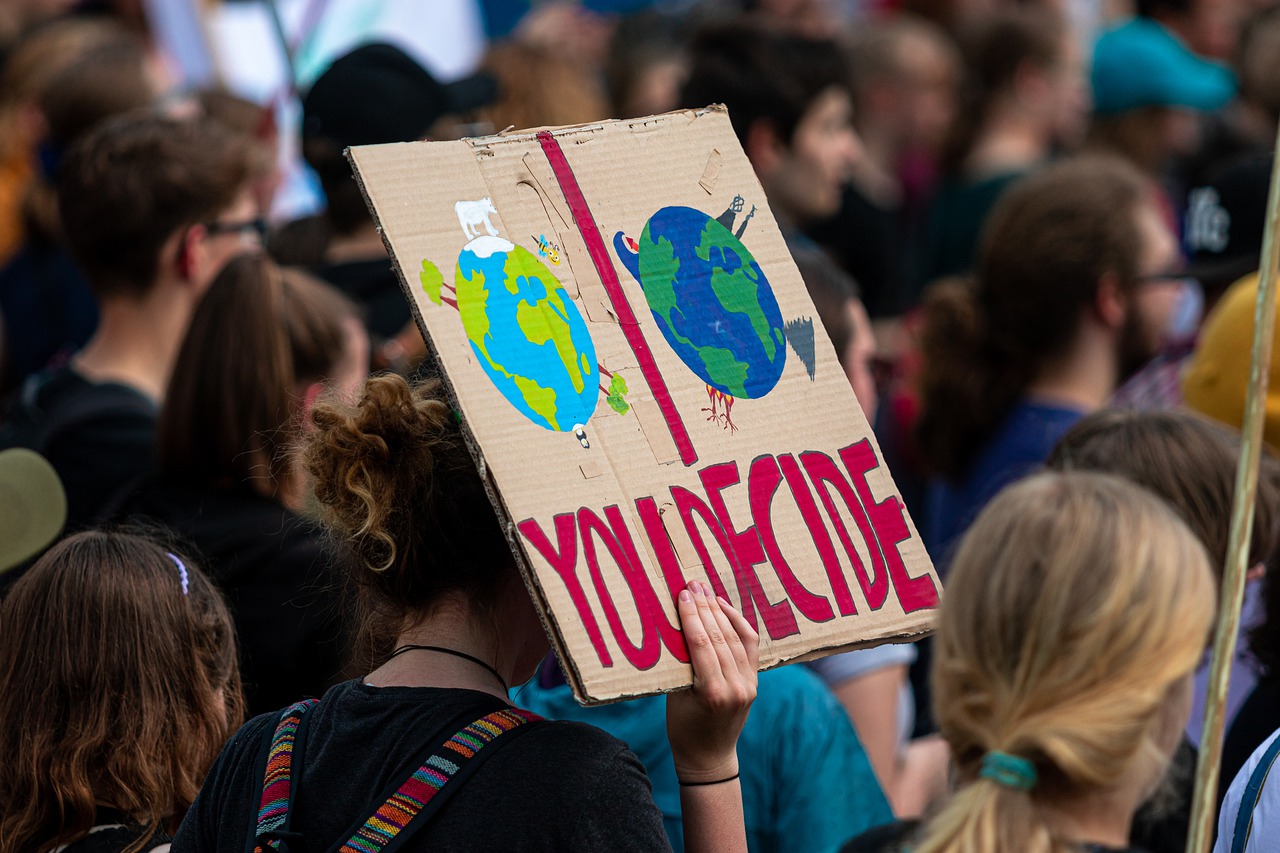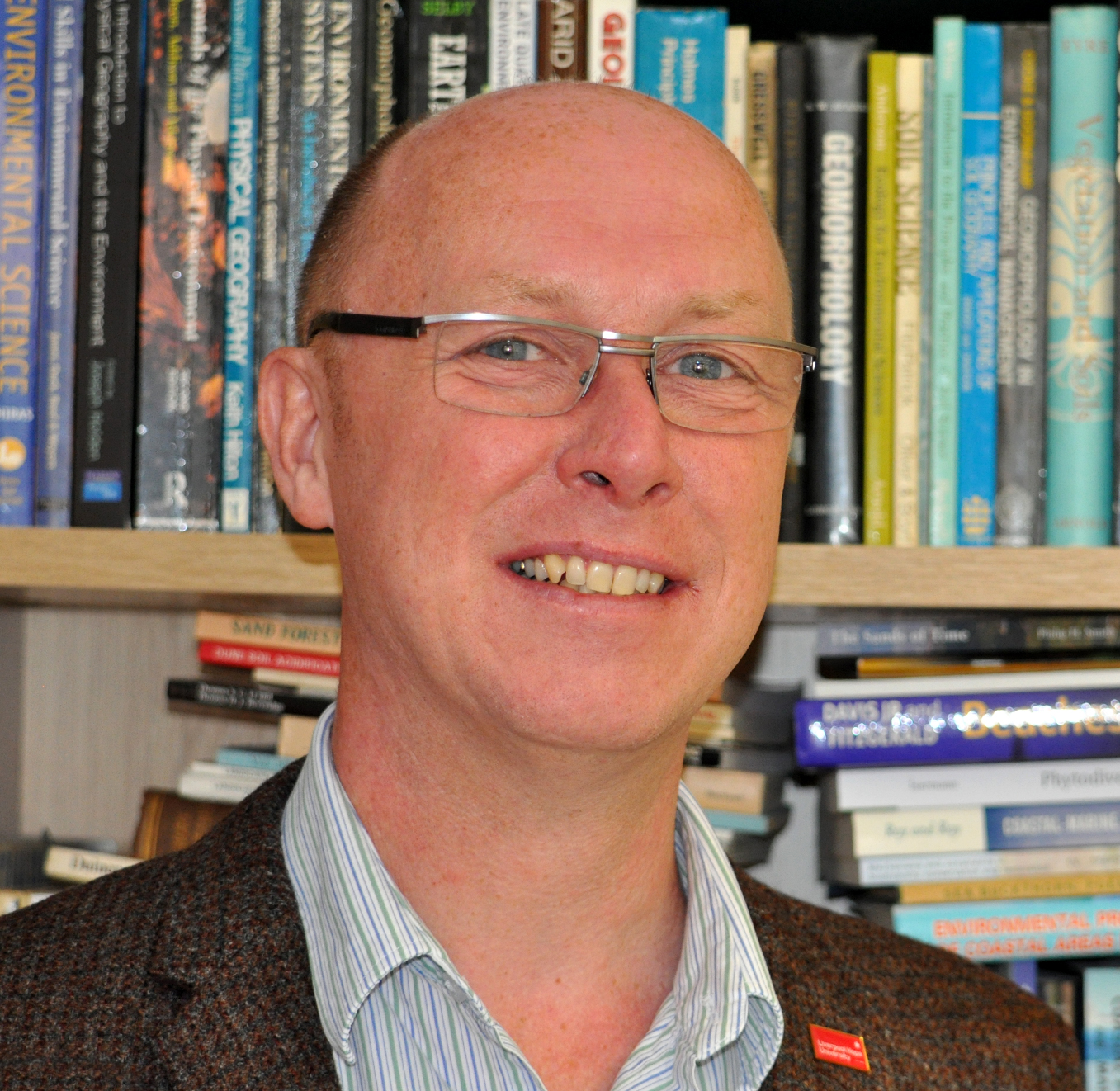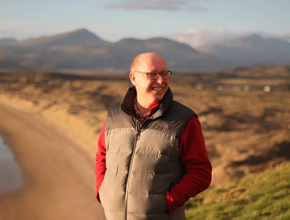AS the eyes of the world turn to the COP 26 summit in Glasgow, this is how Liverpool Hope University is creating climate leaders of the future.
The ‘Conference of the Parties’ runs from November 1st until the 12th - and is being seen as the most important pow-wow on global climate action for almost a decade.
COP 26 will be attended by all nations that signed the United Nations Framework Convention on Climate Change (UNFCCC) back in 1992.
And the crucial event will see countries setting-out goals for ending their own contributions to climate change. November 6th will also witness a day of global marches and demonstrations - to be attended in Glasgow by activist Greta Thunberg - designed to ensure world leaders really follow through on their commitments.

As COP 26 dominates headlines, here we take a look at how Hope’s Department of Geography and Environmental Science is also dedicated to producing graduates who can really lead from the front when it comes to combating climate change in the months and years ahead.
Reverend Paul Rooney is Head of Geography & Environmental Science, an expert when it comes to the conservation and protection of the UK’s vital coastal landscapes and sand dunes.
A Chartered Environmentalist and Fellow of the Royal Geographical Society, Rev Rooney points out that Hope runs environmental courses - BSc Environmental Science and MSc Ecology and Environmental Management - that are professionally accredited by the Chartered Institute of Ecology and Environmental Management (CIEEM).

And that fact is extremely important when it comes to instilling in students a certain ecological philosophy.
He adds: “The CIEEM is the leading professional membership body representing and supporting ecologists and environmental managers in the UK, Ireland and abroad.
“Their Vision is of a healthy natural environment for the benefit of current and future generations.This is very much at the heart of COP 26 - and also at the heart of our teaching philosophy here at Hope.”
The Department’s BSc Geography programme is professionally accredited by the Royal Geographical Society (with Institute of British Geographers) - the UK's learned society and professional body for geography.
Rev Rooney explains: “The Royal Geographical Society advances geography while supporting geographers in the UK and across the world.
“Geography plays a crucial role in understanding our world. It makes a vital contribution to our knowledge of the rapidly changing environmental and social challenges facing us and how we should tackle them.
“In an attempt to meet these global challenges, Hope offers a range of geography-based degrees in addition to our BSc Geography, including BSc Physical Geography, BSc Environmental Geography and BSc Biogeography.
“These allow students to develop their particular interests and to become leaders in a particular area within the broad field of geography.”
Confronting climate change doesn’t end with Hope’s geography degrees, either.
Programmes in tourism - BSc Tourism Management, BSc Tourism and Environmental Change and a Tourism Major - are all professionally accredited by the Tourism Management Institute (TMI).

Rev Rooney, founder of the Sand Dune Network and who was an expert witness in a 2019 public inquiry opposing the potentially-damaging ‘Coul Links’ golf course near Dornoch, northern Scotland, reveals: “The TMI is a network of professionals who promote and develop destinations across the UK, Europe and worldwide.
“They provide opportunities for sharing knowledge and expertise in destination management and act as a voice for destination management.
“Again, responsible tourism and the sustainable management of holiday destinations is a crucial part of the actions required at COP 26, and we’re proud to be leading on these crucial conversations.”
Hope’s thoughts on climate change and habitat protection have also made headlines in recent months.
Earlier this year, Rev Rooney moved to discourage Councils in England from planting Instagram-friendly pampas grass in coastal areas - branding it a ‘serious threat’ to native wildlife.

He told the likes of Wales Online and many others: “Pampas grass is absolutely not a species to promote or encourage on the dune coast - or any of our natural environments in the UK. We’re talking about an alien species native to South America, and we’ve seen pampas grass cause lots of problems for biodiversity conservation on dune and coastal areas across Europe. It can be a very serious threat to native wildlife.”
The Department of Geography and Environmental Science also recently urged tourists visiting Malta to do so responsibly, following a surge of interest in the Mediterranean island after Maltese officials moved to subsidise travel there.
Rev Rooney outlined the importance of the responsible use of water - with Malta having a very limited natural water supply and instead relying on imported water and ‘desalination’ and ‘reverse osmosis’, the process of removing salt from seawater.
He told the media: “The environmental impact of tourism and any international travel can be and is significant. These contribute significantly to the issue of climate change and pose a grave threat to our planet.
“However, there are simple things that people can do to minimise their impacts when travelling abroad for holiday and business.
“And when visiting Malta, I’d strongly recommend visitors shower rather than taking a bath in their hotel room.
“For many countries, including Malta, water is a scarce resource so minimising its use is a responsible action.
“You should also choose to travel on public transport while away on holiday or business in Malta, as the nation has an excellent bus service.”
Meanwhile many other members of Hope’s Department of Geography and Environmental Science are also engaged in research to understand the impacts of environmental change.



